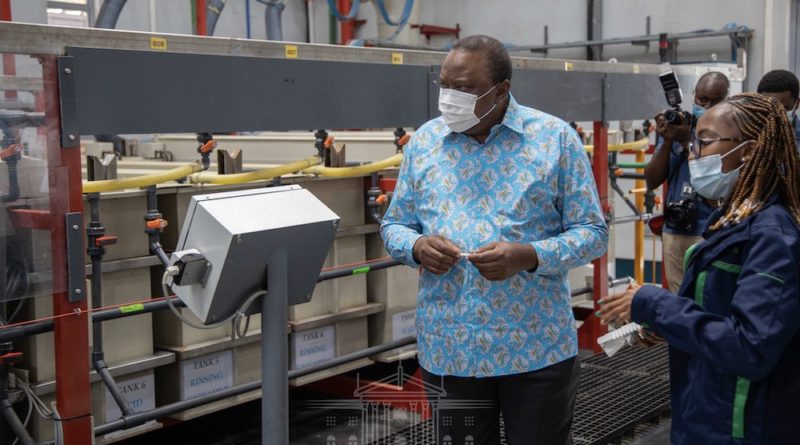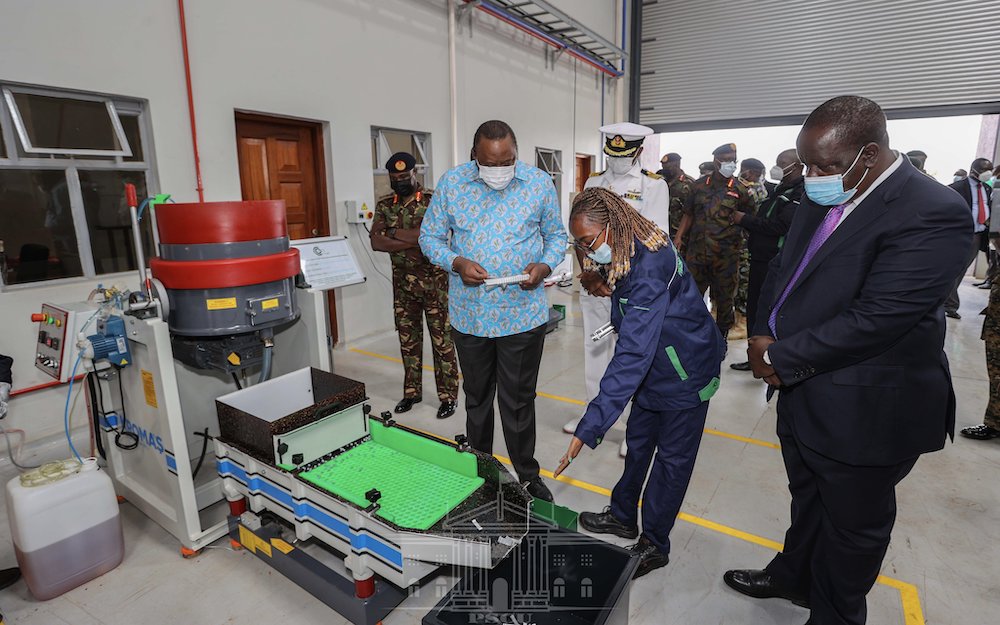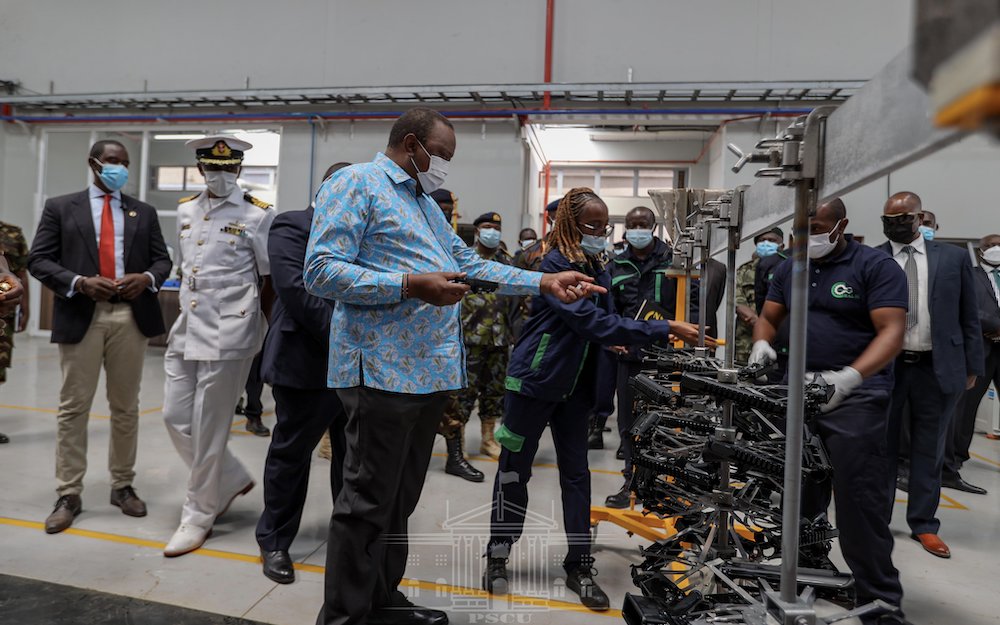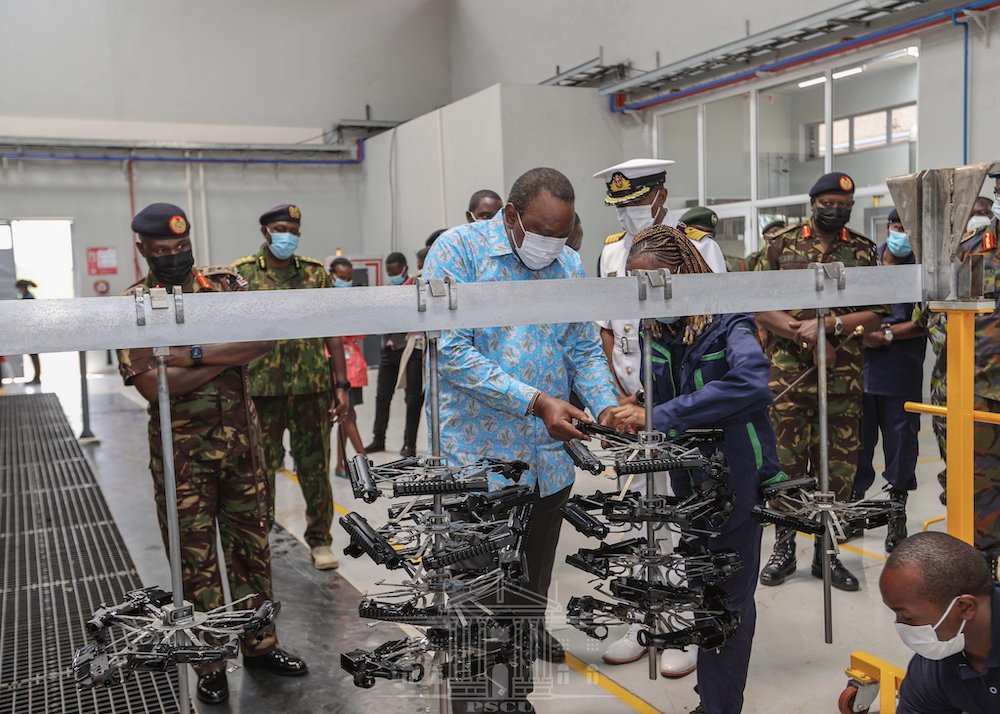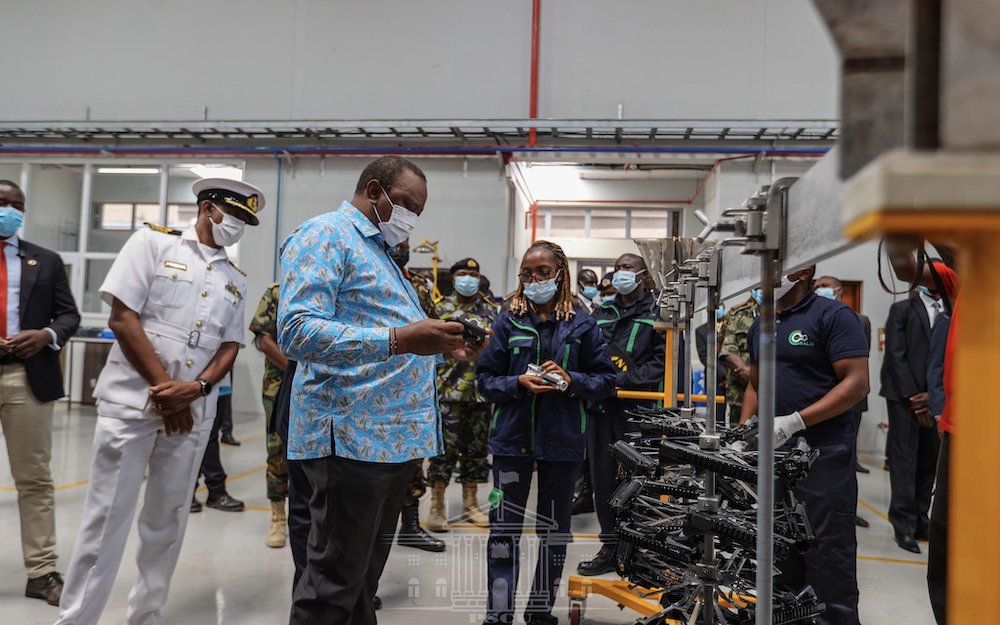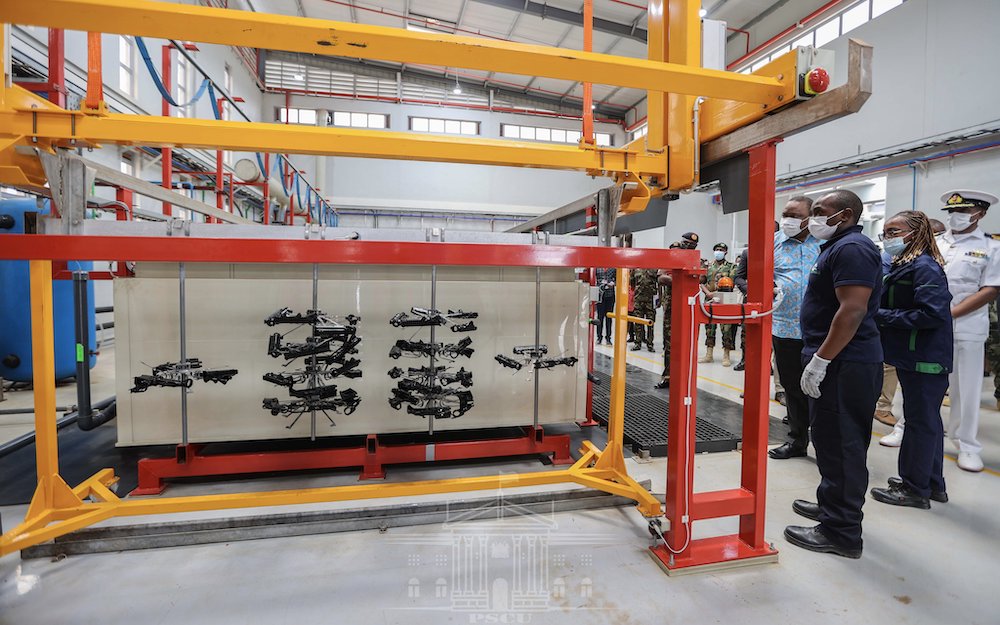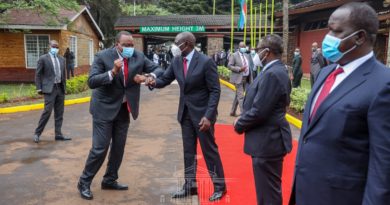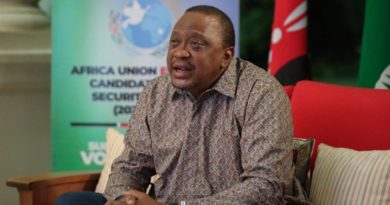President Kenyatta Unveils Shs.4bn Gov’t Weaponry Factory In Ruiru
From president.go.ke and Twitter/@statehousekenya
President Uhuru Kenyatta today opened a new Government small arms factory in Ruiru, Kiambu County.
The Shs 4 billion factory, with a single-shift annual production capacity of 12,000 assault rifles, is part of a broad multi-agency natonal security industries strategy. The factory draws 60 percent of its input from local sources.
Speaking at the unveiling ceremony, the President said Kenya seeks to enhance her self-reliance in security through local production of equipment and technologies in line with the Big 4 Agenda and Vision 2030.
He pointed out that the arms factory, will lower the cost of acquiring weapons for Kenya’s security agencies and establish a sustainable national security industrial base that provides jobs for the Kenyan youth.
“This ground breaking initiative will allow us to lay the foundation for addressing the high cost of weapons acquisition, free us from the complex foreign export approval processes currently in place, provide Kenya with greater security sector independence and flexibility, and allow Kenya to design and produce high-quality weapons, customized to our unique needs and operating environments,” President Kenyatta said.
The Head of State commended the multi-agency security team overseeing the project for setting up the self-sustaining factory at a fraction of what the open market had proposed.
“I am also pleased to note that the diligence of our security organs has delivered this project well under budget, with the project having been completed at a cost of about Ksh.4 billion against private sector quotes of Ksh.15 billion, a saving of Ksh.11 billion,” the President said.
Through the arms factory, the President said Kenya plans to create a weapons manufacturing surplus that will transform the country into an exporter of security equipment.
“This will not only boost our balance of trade position, it will also create employment for thousands of Kenyans, in addition to creating a skills and technology environment that will drive transformation in civilian industries,” he said.
President Kenyatta said the Government’s decision to set up the arms factory was encouraged by Kenya’s success in the local manufacture of some of the equipment needed in the national response to the Covid-19 pandemic.
“As with pharmaceuticals, Personal Protective Equipment (PPE), and medical equipment generally; Kenya has identified a compelling urgency to create domestic production and this also applies to the security sector equipment in order to free our country from the vagaries of international supply chain systems,” the President said.
President Kenyatta encouraged the leadership of the the factory, which draws 60 percent of its input from local sources, to continue adhering to international best practises and standards so as to ensure that it runs optimally by tapping into foreign technologies and knowhow.
By so doing, the President said the company will be able to synergize and leverage on economies of scale, expand market access for its products, and create and protect local jobs.
“The company must continue to invest in research and development, skills and technology transfer, secure international sub-contracting, production under license, multinational co-development and co-production, and the use of intellectual property rights to secure designs and processes,” the President advised.
Interior CS Dr Fred Matiang’i noted that the local manufacture of small arms will help eliminate exploitative brokers and cartels in the supply of weaponry, who he said, enrich themselves by manipulating the Government tendering system.
“In our country, I have come to learn from my short tour of duty that if Covid-19 or HIV/AIDS does not kill us, the disease that will kill us is middlemanism,” CS Matiang’i said.
At the launch, attended by Kenya’s top security chiefs led by Chief of Defence Forces General Robert Kibochi, the Interior CS observed that the country’s security sector has suffered substantially from middlemen who supply equipment at highly inflated prices.

